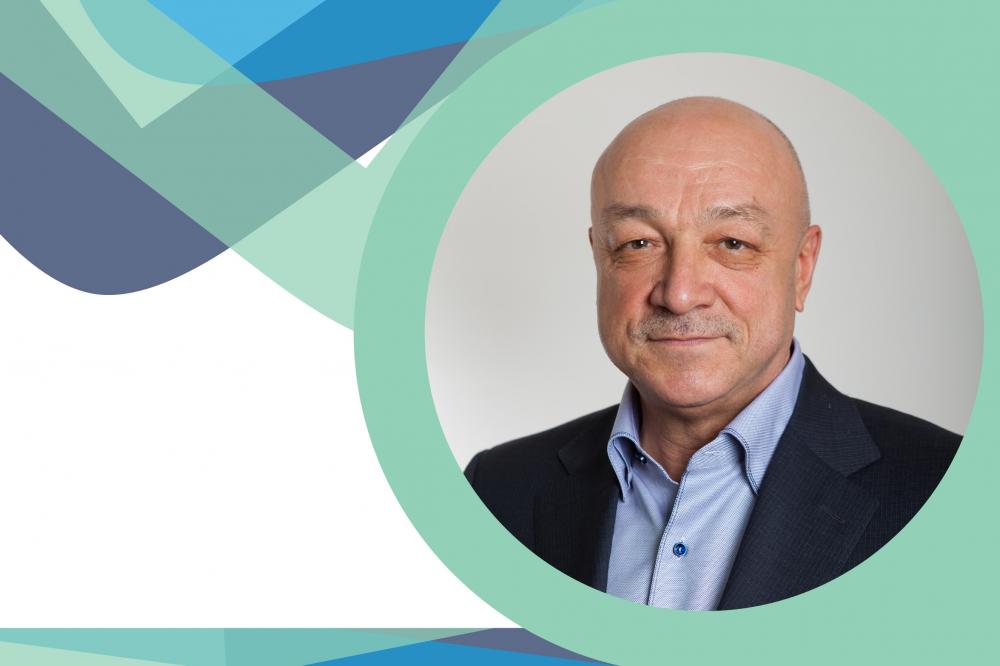On December 8, 2020, the XII All-Russian Congress of Pharmaceutical and Medical Industry Workers took place and was part of the business program of the International Scientific and Practical Forum “Russian Health Care Week.”
The Congress was supported by the Russian Ministry of Health, the Russian Ministry of Education and Science, Roszdravnadzor (Russian Federal Health Care Supervisory Agency), and the Russian Academy of Sciences. The event was organized by the Russian Ministry of Industry and Trade, the Russian Union of Industrialists and Entrepreneurs, the Rosmedprom Association, the Russian Federation’s Chamber of Commerce and Industry, and more. Yuri Kalinin, President of Rosmedprom Association, moderated the panels.
The major topics raised during the panel sessions included the counteraction to the spread of a new coronavirus infection; seamless supply of medicines to the healthcare system; the national project “Healthcare”; high-profile innovations; the breakthrough drug and medical products launched into production; aspects of cooperation between scientific centers and manufacturers. The panels also summed up the results that industry-specific entities have brought to make Russian drug production more competitive, and many other subjects.
The Congress was attended by representatives of the Ministry of Healthcare of the Russian Federation, research centers and companies producing medical devices: Minister of Healthcare of the Russian Federation Mikhail Murashko, First Deputy Minister of Industry and Trade of the Russian Federation Sergey Tsyb, Director of the Department of Pharmaceutical and Medical Industry of the Ministry of Industry and Trade of the Russian Federation Alexey Alekhin, President of the Russian Union of Industrialists and Entrepreneurs Alexander Shokhin, President of the Chamber of Commerce and Industry of the Russian Federation Sergey Katyrin, CEO of the Association of Russian Pharmaceutical Manufacturers Viktor Dmitriev, and other industry officials.
Russian Health Minister Mikhail Murashko gave a speech to bring the measures taken by the government to balance the drug price situation in the pandemic to focus. He further highlighted the measures taken for some medicines to be brought to the market quickly. “The laboratory complexes worked in several shifts so that medicines could be tested and brought to the market soon”, he said. Furthermore, Mikhail Murashko made some comments on the shortage of medicines amid the new incidence rate of COVID-19, “The medicine consumption is snowballing in autumn. There is an outburst of patients at a time. In this setting, the pharmaceutical industry has given a delay. But now, the volumes have risen and satisfied the current demand. Moreover, among other things, they are currently making some stocks to supply patients with new coronavirus infection adequately.”
Mikhail Nekrasov, General Director of NANOLEK, took part in the Congress as a representative of the production unit. He began his speech for everyone to remember that NANOLEK Biopharmaceutical Enterprise, like all pharmaceutical enterprises, did not cease to operate in times of pandemic. Even more, it went on with producing medicines and even launched new ones on time as dictated by the circumstances.
“NANOLEK is a life-supporter, indeed. This is why we could not let the production of vital medicines for the patients e.g. suffering from diabetes mellitus and cardiac dysfunction be halted in the pandemic span; not to mention vaccines and orphan medicines.
Our company did not stop for even 1 hour in the face of adversity. Seeking to help the Russian people overcome the pandemic, we shifted the annual production program to the ready product of solid dosage forms. We did it as soon as practicable. This product has been available in the COVID-19 treatment guidelines since the early days of the pandemic. It’s Hydroxychloroquine. With our technology, we started producing it in Russia very soon.
Furthermore, Government Resolution No. 441 reducing the expertise scope in amending the documents of the registration dossier for a registered medicinal product contributed as well. The amendments were related to the replacement, adding and excluding the production site of the companies manufacturing the active pharmaceutical substance and the finished dosage form. The primary package is now redesigned as well.
However, applying Government Resolution No. 441 to the other drug, Favipiravir, which is in great demand, has posed some difficulty. Our company cannot be issued a registration certificate since September 2020 due to various reasons, including the required clinical trial results to be available. From our perspective, we have bioequivalence data and a comparative dissolution kinetics test: these are an adequate basis for the generic product to be registered amid the pandemic. Especially, Government Resolution No. 441 provides for the registration option with post-registration trials.
Resolution No. 1771 is a very important tool to allow pharmaceuticals to enter the market. It sets forth the pricing scheme that applies to those pharmaceuticals no longer profitable. It enabled us to put Lomustine, an international non-proprietary name for a cancer therapy drug, back on the market”.

